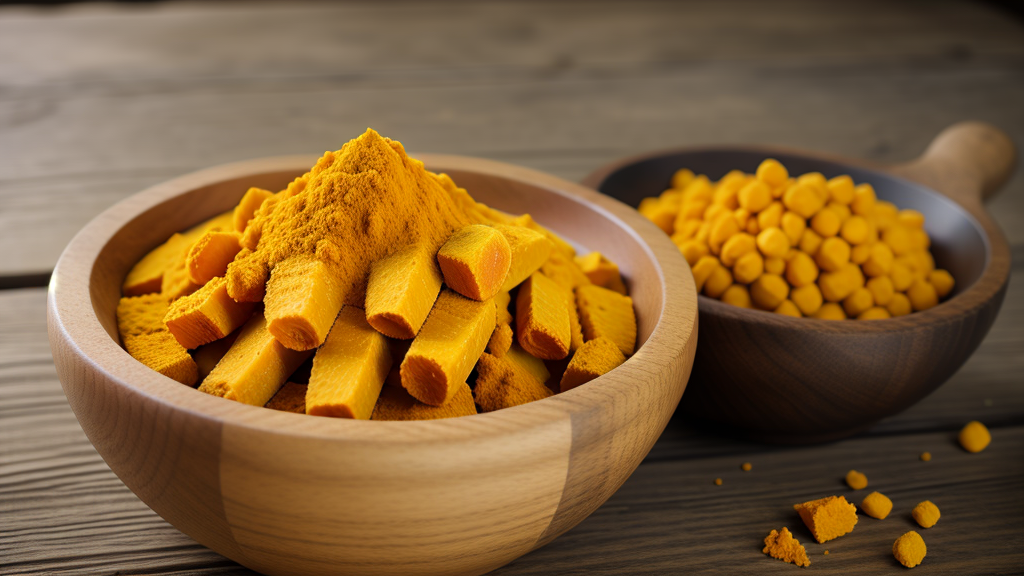Introduction
Many people are intrigued by the properties of this tuberous root, but don’t know how to take it safely, or what the ideal dose of turmeric is to get all of its health benefits.
Read on below to learn more about this topic: how and how much turmeric you should take, helpful tips depending on the product you’re going to use, recommended doses for a specific use, as well as other related aspects to consider.
Ways to Consume Turmeric as a Natural Remedy
The traditional way of consuming turmeric is, of course, as a seasoning in recipes and drinks, but in recent times this spice has gained great popularity as a natural treatment, hence promoting other forms of consumption specifically designed to take advantage of its medicinal effect.
The most common options include:
– Turmeric tea. This can be prepared at home with the fresh tuber, powdered, or with a commercial tea bag.
– Turmeric supplements. There is a wide variety of products, for example, turmeric capsules, tablets, extracts, tinctures, oils, etc.
Other options include raw turmeric, turmeric powder, turmeric essential oil, and turmeric paste.
Amount of Turmeric to Consume
Organizations such as the Department of Agriculture (USDA) and the United States Food and Drug Administration (FDA) have not given an official recommendation on the daily dose of turmeric that a person should take.
It is considered that a person can consume between 1.5 and 3 grams of turmeric per day, or approximately 1.4 mg of turmeric for each pound of body weight, several times a day.
Below are various doses of turmeric based on the amounts that have been used in different clinical trials.
Turmeric Supplements or Curcumin Supplements
There is still some debate about it…
Turmeric powders and supplements offer content closer to the root itself, as they retain more of its nutrients and natural properties. On the other hand, curcumin supplements are made from an isolated form of turmeric’s most active antioxidant.
Absorption of Turmeric and Curcumin
Another factor to consider is the absorption of each. Neither curcumin nor turmeric is well absorbed in the absence of fat.
Black pepper can also promote the bioavailability of turmeric, as its main active compound, piperine, can prevent the components of this root from breaking down during digestion, allowing them to remain in the body for longer.
Possible Side Effects and Precautions
Most people can take turmeric (fresh root, powder, capsules) without suffering adverse effects, but its consumption can be counterproductive in some cases.
Taking too much turmeric is a rare risk. Some studies have recorded that, after using doses between 490 mg and 2,100 mg, no obvious adverse effects have been observed; however, on rare occasions, some people have experienced mild side effects when taking higher doses.
Use of turmeric in cooking
Turmeric is a root widely used as a spice and culinary colouring in many eastern countries, but its use in cooking is no longer limited to these regions.
